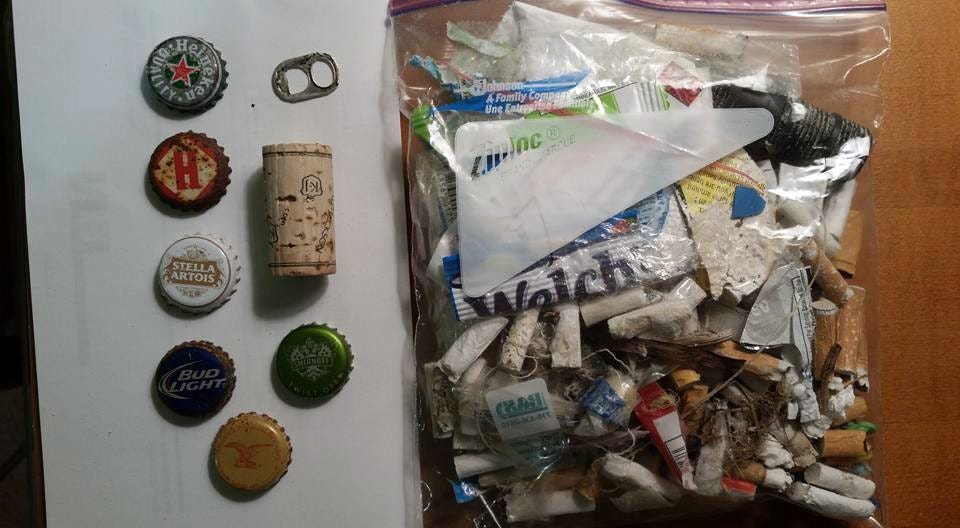
The problem of plastic in Northwest Florida waterways grows each year.
Plastics — including bags and water bottles, among other items — pollute the water, providing a hazard to wildlife and fish.
Turtles mistake plastic bags for jellyfish, one of their favorite foods.
Shorebirds mistake colorful pieces of plastic for food.
Dolphins and whales ingest plastic by mistake.
The average American annually throws away an average of 185 pounds of plastic.
And that plastic never truly disappears; it enters our waterways through streams, rivers, storm and sewer drains, and eventually finds its way to the ocean.
A relatively new source of plastic in the ocean comes from microbeads found in toothpaste, soap, body wash and make-up. Microbeads are about the size of a grain of salt, and they are regularly flushed down the drain. They are so small that they escape water treatment systems and end up in our waterways.
Fish and other wildlife easily mistake them for food.
Several efforts are underway to curb use of microbeads. The U.S. House of representatives voted in early December 2015 to ban plastic microbeads from personal care products. A similar bill has been introduced in the Senate.
So, what can you do in 2016 to limit the growing plastic problem?
Here are several steps to reduce your plastic use.
Don’t buy products with plastic microbeads. Look for products with natural scrubbers like salt and sugar.
Reduce use of plastic water bottles. Carry your own reusable water bottle and coffee mug.
Use recyclable grocery bags. This could keep as many as 20 plastic bags out of the environment each week.
Buy products with less packaging. This can be difficult, as it seems common products have more plastic packaging than ever.
Pick up plastic when you see it. Join a community-sponsored event to clean the beaches. In our community, the Choctawhatchee Basin Alliance sponsors International Coastal Cleanup Day.
Let’s all do our part to increase awareness of marine debris' negative impact.
Make small changes to keep local waterways healthy and sustainable.
That starts with being responsible, and leaving no trash behind.
Laura Tiu is an agent at the University of Florida's Institute of Food and Agricultural Sciences Extension office in Crestview.
The average American annually throws away an average of 185 pounds of plastic.
That plastic never truly disappears.
It enters our waterways through streams, rivers, storm and sewer drains, and eventually finds its way to the ocean.
Source: University of Florida Institute of Food and Agricultural Sciences
DID YOU KNOW?
This article originally appeared on Crestview News Bulletin: TIU: 5 ways to curb Northwest Florida's growing plastic problem
